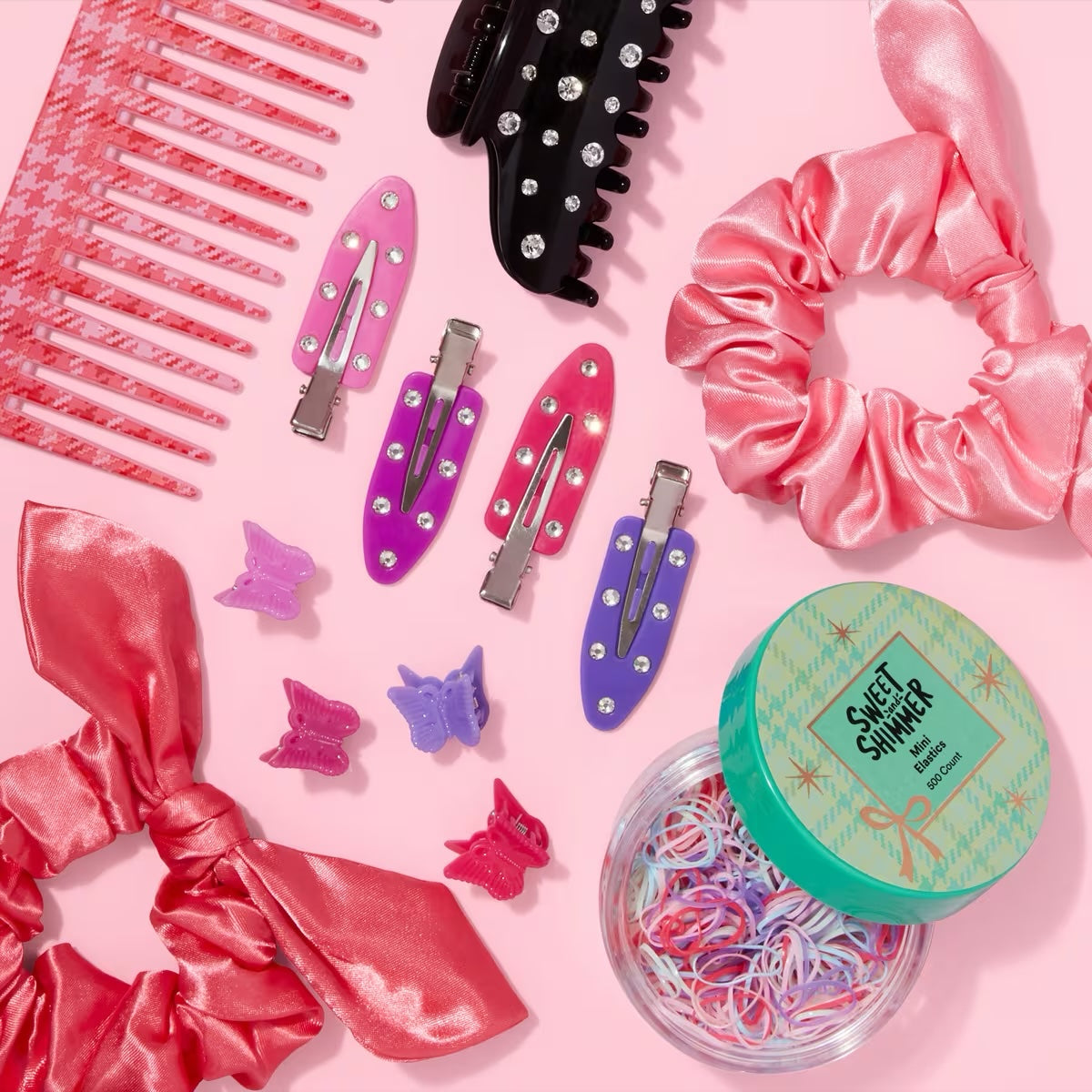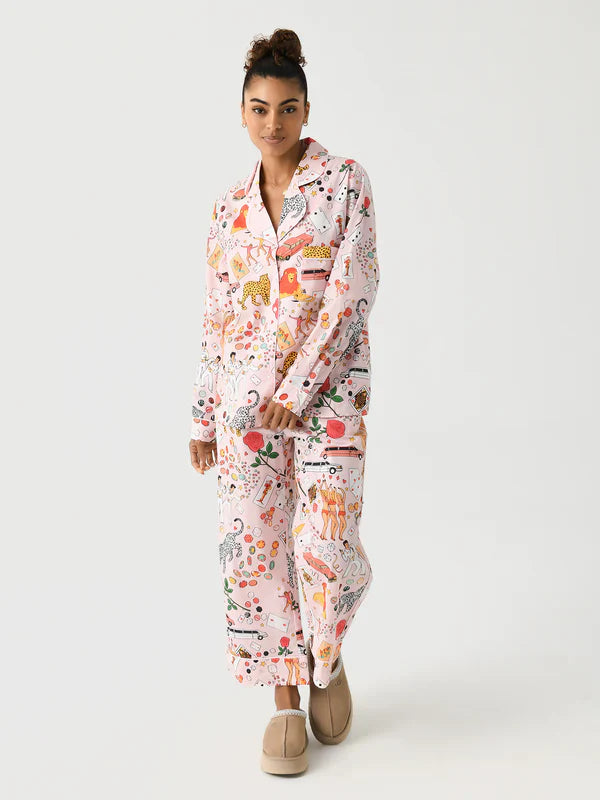The Future of the Lingerie Industry: Trends and Growth

The Future of the Lingerie Industry: Trends and Growth Opportunities for the Next Five Years
The global lingerie industry is poised for significant growth in the next five years, driven by evolving consumer preferences, technological advancements, and a strong focus on inclusivity and sustainability. Valued at approximately $88 billion in 2023, the lingerie market is expected to reach well over $130 billion by 2028 as new opportunities emerge and established brands adapt to the changing landscape.
For business leaders, investors, and marketers, understanding the forces shaping the future of the lingerie industry is critical to capitalizing on its potential. Let’s explore the key trends and drivers that will fuel growth in this dynamic and competitive market.
1. The Rise of Body Inclusivity and Diversity
The days of "one-size-fits-all" are over. Consumers increasingly expect brands to celebrate body diversity by offering inclusive sizing, cuts, and marketing campaigns that cater to all shapes, ethnicities, and ages. Leading brands have already embraced inclusivity by expanding size ranges and featuring diverse models, but this trend is far from peaking.
By 2028, The Future of the Lingerie Industry: Trends and Growth the demand for body-positive lingerie will continue to grow as consumers prioritize comfort, fit, and representation. Businesses that champion inclusivity—both in product development and brand messaging—will capture greater market share and build stronger customer loyalty.
2. The Impact of Technology and Smart Lingerie
Innovation is rapidly transforming lingerie design and shopping experiences. Emerging technologies like AI, 3D body scanning, and virtual fittings are making it easier for consumers to find the perfect fit, addressing one of the industry's longstanding challenges—fit inconsistency.
Moreover, smart lingerie is gaining traction. From wearable tech that monitors body metrics to temperature-regulating fabrics, technology-driven lingerie will open up opportunities for businesses to merge functionality with fashion.
3. Sustainability as a Market Imperative
Sustainability is no longer optional. The modern consumer demands transparency and eco-conscious practices across the supply chain. This trend is pushing brands to adopt eco-friendly fabrics such as organic cotton, recycled lace, and biodegradable mesh, while reducing waste through circular design processes.
The growth of slow fashion and sustainable lingerie will drive long-term value as brands position themselves as ethical leaders. Companies that incorporate carbon-neutral operations, The Future of the Lingerie Industry: Trends and Growth transparent supply chains, and recyclable packaging will dominate as sustainability becomes a purchase-driving factor.
4. Comfort and the Dominance of “Everyday Luxury”
The definition of lingerie is expanding beyond sensuality to prioritize comfort and versatility. Consumers now seek intimate apparel that seamlessly blends style, comfort, and function for everyday wear. The rise of wire-free bras, bralettes, seamless fabrics, and soft loungewear-like lingerie reflects this shift.
Moreover, the concept of "everyday luxury"—where lingerie serves as a personal indulgence for comfort and confidence—will drive sales growth. Brands offering products that look good, feel good, and perform well will thrive in the coming years.
5. The Growth of E-Commerce and Direct-to-Consumer (DTC) Models
The global shift to e-commerce has transformed how consumers purchase lingerie. By 2028, online lingerie sales will account for a substantial portion of the market, fueled by seamless shopping experiences, personalization, and the convenience of virtual fittings.
The Future of the Lingerie Industry: Trends and Growth DTC brands will lead this revolution, disrupting traditional retail by offering transparency, better pricing, and highly personalized experiences. Businesses investing in user-friendly websites, mobile-first strategies, and data-driven marketing will be well-positioned to capture the digital consumer.
6. The Role of Emerging Markets
While North America and Europe remain dominant players, Asia-Pacific and Latin America are emerging as key growth regions. Rising disposable income, urbanization, and a cultural shift toward self-expression are driving increased demand for lingerie in these markets.
The Future of the Lingerie Industry: Trends and Growth In particular, countries like India, China, and Brazil represent significant opportunities for global brands to expand their reach. Brands that understand local cultural nuances while delivering innovative products will gain a competitive edge.
7. The Reinvention of Brick-and-Mortar Retail
While e-commerce dominates the conversation, physical stores are being reimagined as experience-driven retail spaces. Brick-and-mortar stores are evolving to provide personalized fittings, styling consultations, and immersive brand experiences that blend online and offline shopping.
The Future of the Lingerie Industry: Trends and Growth Lingerie boutiques, in particular, are becoming community-driven spaces where customers can interact with products, attend events, and enjoy a tailored shopping experience. This hybrid model will redefine the retail landscape for lingerie.
Conclusion: A Thriving Future for the Lingerie Industry
The Future of the Lingerie Industry: Trends and Growth, The lingerie industry is undergoing an exciting evolution, propelled by inclusivity, technology, sustainability, and changing consumer demands. Brands that embrace innovation, prioritize comfort, and respond to the growing demand for ethical practices will lead the way over the next five years.
As the global market expands, businesses have an opportunity to redefine lingerie as more than just intimate apparel—it’s a symbol of self-confidence, empowerment, and personal expression. For industry leaders, now is the time to invest in these transformative trends, setting the stage for growth, differentiation, and lasting success in the competitive lingerie landscape.
The future of lingerie isn’t just about what women wear—it’s about how it makes them feel.
Are you ready to adapt to the lingerie industry’s evolution? Share your insights, challenges, or innovative strategies in the comments below! Let's connect and shape the future of intimate fashion together.


